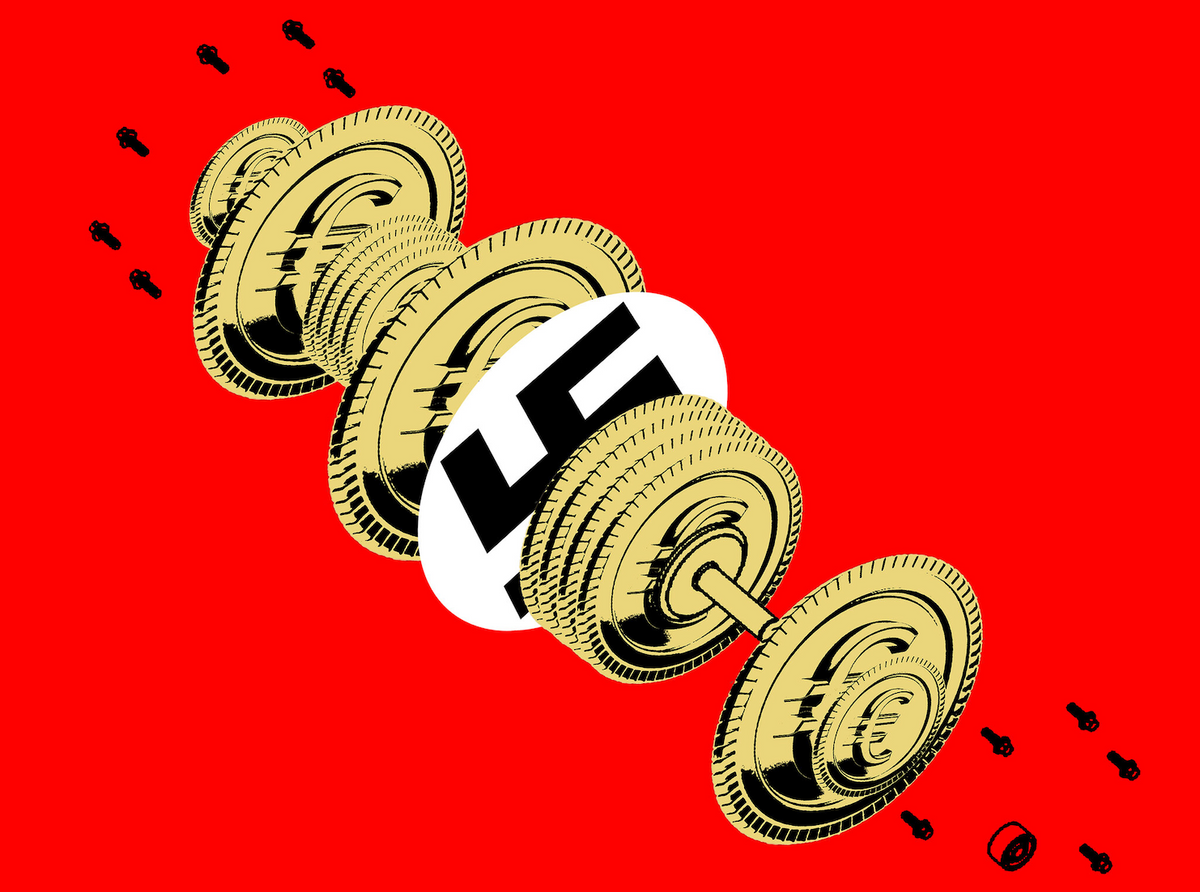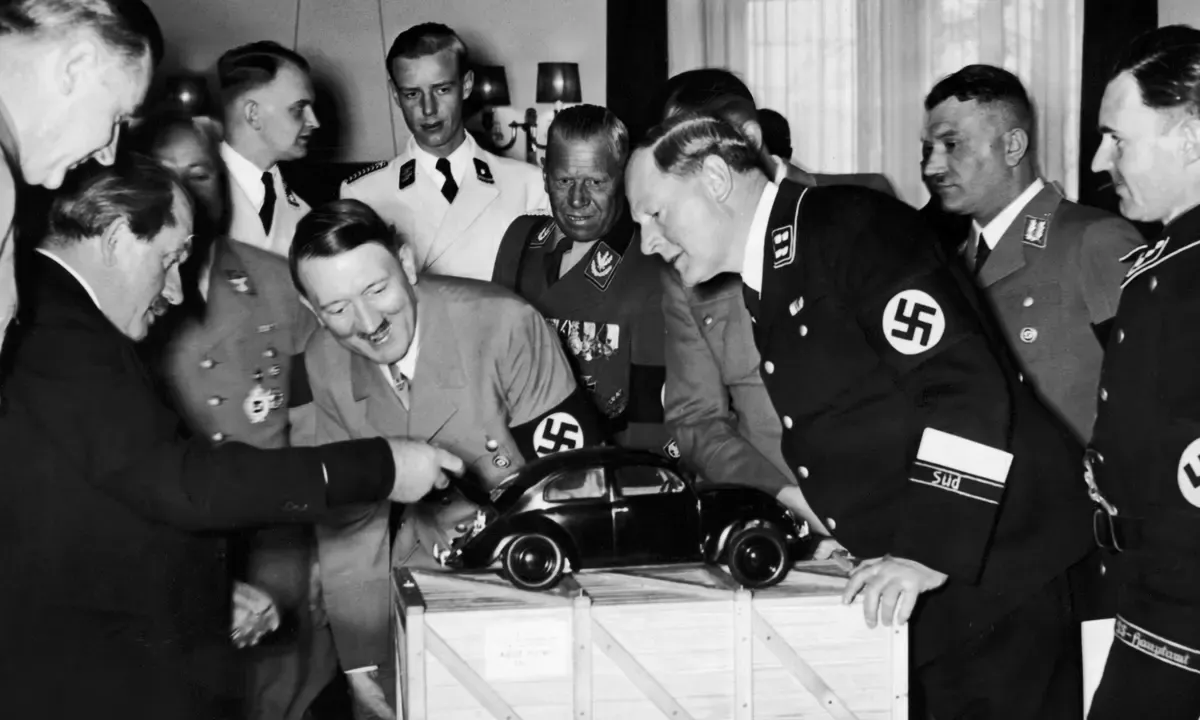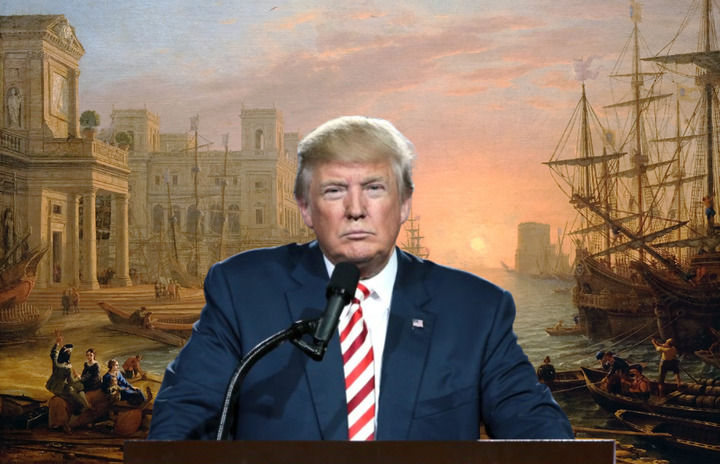From Fascism to Fortune - Modern Dynasties' Nazi Links
What do some of the most influential German family dynasties have to do with the Nazi Regime? What lies Beneath Germany's facade of economic prosperity and what are the complex narratives steeped in familial control, Nazi connections, and the ongoing struggle to come to terms with their dark past?

By Lia Walsh
Germany, undoubtedly one of the leading economic powerhouses of the European Union, boasts industrial prowess and a robust manufacturing sector that contributes substantially to global economic activities. However, beneath the facade of prosperity, a complex narrative emerges—one of familial control, Nazi connections, and the struggle to reckon with the past. This article delves into the enigmatic stories of two influential German family dynasties—Dr. Oetker and von Finck. Their intertwined histories illuminate the dark underbelly of economic success, shadowed by ties to the Nazi regime and the ensuing efforts to conceal their past.
The tale begins with Dr. Oetker, a name synonymous with household food products. During the 1930s, the CEO and inheritor of Dr. Oetker, Richard Kaselowsky, was a known Nazi supporter, inner-circle member, and ideologue. Kaselowsky funneled resources into projects that supported Aryanization and even went so far as to distribute signed copies of Mein Kampf to employees at the time. This support for the regime was taken further by Kaselowsky's son, Rudolf August, who volunteered for the SS and later denied any knowledge of the concentration camps, despite being personally trained at the Dachau concentration camp. Although their family benefited from the regime by using forced slave labor, Kaselowsky's son was only detained for his role in the SS, with the denazification case never going to trial. Instead, he was exonerated by an internal subcommittee made up of his own employees. This, in turn, allowed Rudolf August to become the CEO of Dr. Oetker after World War II.
When Rudolf August died in 2007, ownership of the Dr. Oetker conglomerate, one of the largest privately-owned companies in Germany, was divided among his eight children, making them all individual billionaires. Under Rudolf August's leadership, the board vetoed any attempts to investigate the company's history during the Nazi era. It was not until 2008, when his children commissioned historians to uncover the company's history, that his eldest son publicly stated that his father was a "National Socialist." However, much of the family did not accept these findings. August's third wife rejected the claims, along with her three children, leading to an ideological split within the Dr. Oetker ownership parties. The latter group currently maintains the belief that their father, a Waffen SS officer, had no gain or affiliation with the Nazi regime.

In 1931, Adolf Hitler held a private meeting in Berlin with the wealthiest individuals in Germany to ask them to buy weapons for the newly emerging SA. One attendee that day was August von Finck , the owner of von Finck and majority shareholder in other insurance firms such as Allianz and Munich RE. On that day, von Finck promised 5 million Reichsmarks through Allianz, equivalent to over 1.2 million euros today, to help arm the paramilitary SA. As a reward for this initial investment, von Finck was granted political advantages, which he used to target his Jewish competitors. He wrote letters to the established Third Reich in 1939, stating that his competitors, Aufhauser, Rothschild, and Dreyfus, should be expropriated on the basis of their Jewish ownership. In a letter to the German Chamber of Commerce, he stated,
"the German private banking sector is still largely made up of non-Aryan firms. The gradual cleansing of this trade, which is so strongly influenced by the Jewish element, must not be halted by the granting of applications for exemptions, but must be promoted by all means."
This all culminated in von Finck buying Dreyfus's bank well below market value and having Aufhauser's bank seized during Kristallnacht. The worst fate befell the Rothschild heir, as he was held captive in a hotel in Vienna by the SS and forced to sell to von Finck for tens of millions below market value.
At the end of the war and at August Von Finck's denazification trial, von Finck used his political and financial power to destroy evidence from the case file and to threaten key witnesses into not providing damning testimonies. Worst of all, the judge, Julius Herf, was blackmailed into watering down the indictment against von Finck to just 2,000 German Marks, which he later applied, reducing it to nothing. When Von Finck died, his wife and children inherited a fortune estimated to be over 8 billion euros. Furthermore, attempts to find any acknowledgment of the family's past will be in vain, as the family has made no effort to do so.
These case studies are not the only ones involving family dynasties, such as the Quandt family (BMW), Porsche, and many others. The lack of accountability and acknowledgment of their modern-day success and prosperity due to the Nazi regime must be challenged, and these modern empires must confront their ugly past. The broader context of Germany's Erinnerungskultur—its culture of remembrance and atonement—provides a framework for acknowledging past atrocities and striving for a responsible future. While these families' efforts to acknowledge their pasts differ, they underscore the importance of historical accountability and the role of wealth in shaping narratives.
In a world driven by economic power, these narratives remind us that even economic giants carry histories that demand acknowledgment and reconciliation. The lessons drawn from these stories emphasise the enduring relevance of ethical reflection, collective memory, and societal accountability in the pursuit of a just and responsible world.


